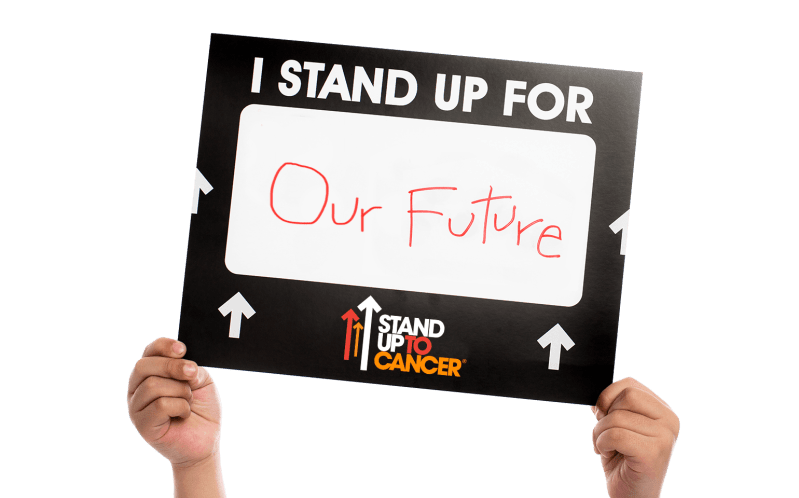Stand Up To Cancer (SU2C) funds and develops the newest and most promising cancer treatments to help patients today. SU2C dramatically accelerates the rate of new discoveries by connecting top scientists in unprecedented collaborations to create breakthroughs. SU2C innovations lead to better cancer prevention, diagnosis, and treatment, which means that we can help save lives now.
Today alone, 5,200 people in the United States will be diagnosed with cancer. Progress against one type of cancer is progress against ALL cancer. That’s why we’re committed to funding ambitious and robust research and awareness efforts focused on incorporating health equity in cancer care, for the benefit of all patients facing cancer.
100% of your donation received supports Stand Up To Cancer and its collaborative cancer research programs.






